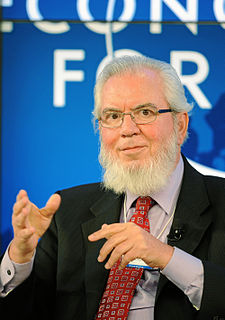A Quote by Warren Buffett
If some institution wants to sell you a billion dollars worth of mortgages, they might have to sell 100 million in the market, and then you'll buy the other 900 million on the same terms. Now, the very fact that this has been authorized or will be authorized, I hope, will firm up the market to some degree. And that's fine. But you don't want to have artificial prices being paid.
Related Quotes
When Berkshire Hathaway laid out three billion dollars for GE today, we didn't spend it, we invested it. When the Federal government buys the mortgages, they're not spending it, they're investing it. Now, they're investing it in distress type assets but they're buying them at distress prices if they buy them at market. It's the kind of stuff I love to do. I just don't have 700 million. Maybe we could go in it together.
I think everyone should sell whatever product they want to sell for whatever price they want to sell it for, but ultimately the market will dictate what it is and people will have to charge less money for everything. Record companies have been overcharging people for way too long and now this is the trouble that they're in.
Yet another hedge fund manager explained Icelandic banking to me this way: you have a dog, and I have a cat. We agree that each is worth a billion dollars. You sell me the dog for a billion, and I sell you the cat for a billion. Now we are no longer pet owners but Icelandic banks, with a billion dollars in new assets.
If you jump into a market when everyone else is doing the same thing, you're probably too late. On the other hand, if you get into a market early, when it's fundamentally undervalued, then wait for it to become extremely overvalued, and sell once a true top has been established, you should do very well.
Nearly one billion women and men, a third of the world's workforce, are either unemployed or unable to earn enough to keep themselves out of extreme poverty. There are 100 million new entrants into the labour market each year. Up to 90 percent in some regions are in the informal economy. 180 million kids are engaged in the worst forms of child labour. Put it all together and it is not only morally unacceptable, but politically dangerous
What's fascinating . . .is that you could now have a business that might have been selling for $10 billion where the business itself could probably not have borrowed even $100 million. But the owners of that business, because its public, could borrow many billions of dollars on their little pieces of paper- because they had these market valuations. But as a private business, the company itself couldn't borrow even 1/20th of what the individuals could borrow.

































